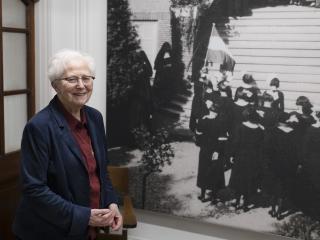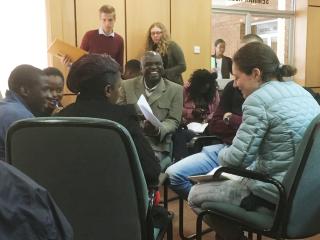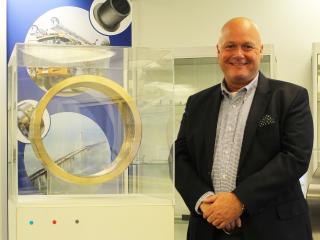Blind spot during refugee journey
Boats full of refugees trying to drop anchor in Greece and Turkey, or brand-new asylum-permit holders in the Netherlands who must meet the civic integration requirement—although it may seem as if their story is just beginning, the boat and the residence permit follow a major journey, and one that has often been filled with suffering. “I would like to unravel and expose this blind spot.”
These are the words of Conny Rijken, a full professor of Human Trafficking and Globalization. She is interested in victim migration. “Or, more precisely, people who become victims during their journey. Examples include human trafficking, exploitation, torture, extortion, confinement, and child labor. I would like to raise awareness about the traumas that they encounter, and I would like to see policies that take this into account. "
I would like to raise awareness about the traumas that they encounter
"For example, we currently see people who have just received an asylum permit having complete breakdowns—while society expects them to meet the civic integration requirements and get a job in exchange for the housing and safe home that the Netherlands is providing to them. Moreover, it would be good to know things like whether they are still in debt to smugglers. Otherwise, there’s a good chance that the smugglers’ networks will track them down in the Netherlands, with all the associated consequences.”
Study in two parts
Data science for humanitarian innovation’ consists of two parts. The first part is a study of child labor among Syrian refugees in Turkey. Rijken and Professor Hein Fleuren have recently started on this part, in collaboration with the specialized market-research firm Upinion. “Refugees are extremely difficult to reach. We cannot know where they are or whether it might be dangerous to talk with them. Now, during the COVID-19 pandemic, it is even more complicated. Upinion is building digital communities among these refugees, contacting them through social media, like WhatsApp and Facebook. We are using this network and the application that Upinion has developed to conduct a survey among these people.”
In contact with refugees through digital communities
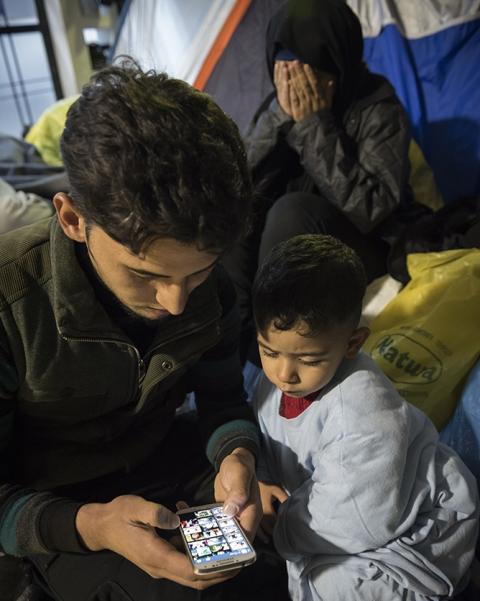
Child labor in Turkey
Non-governmental organizations are seeing an increase in child labor among Syrian refugees in Turkey. “We are using a questionnaire to ask parents how many children are in their household, whether they are working and, if so, in which sector, how much they are earning, and what the advantages and disadvantages are. Although I do not expect that parents will answer that their children are involved in prostitution, we are able to draw other conclusions from the data. Upinion is collecting the data for us. Together with a junior researcher from Tilburg University, we are analyzing the data, after which I will translate the results into conclusions.” Rijken has already arranged for the questionnaires, the consent of the Ethics Committee, and the contract with Upinion to ensure compliance with the GDPR. She expects to publish her research results in mid-2021.
We ask five hundred people what they encountered during their journey
West-African refugees
The second part of the research project that is being financed by the Tilburg University Fund Foundation focuses on West-African refugees. Rijken will soon start exploring which refugees from which countries she could best involve. “We would like to ask 500 people what they encountered during their journey, so that we can obtain an image of the route that they have travelled and any traumatic experiences they might have had along the way. We will be asking them questions three times within a period of a year or so, although it could also be shorter. The digital method makes it possible to do this, because we do not lose contact with them if they decide to move on.”
Routes in view
Rijken has previously collaborated with Hein Fleuren on a study of living conditions of people outside of refugee camps in Greece. A graduate student is currently investigating migration from Nigeria in a study made possible by funding from the Dutch Research Council. In collaboration with the forensic psychologist Mario Braakman, Rijken will also be investigating victim migration and the traumas experienced by asylum-permit holders in the Netherlands. How can we interact with them, and what could be improved? A project proposal to this end has been submitted. This research project focuses specifically on Syrians and Iraqis. “This is because all of the routes have been charted.”
Victimigration
Rijken has been interested in victim migration since the beginning of her career. Her fascination with the topic started when she was working at the Immigration and Naturalization Service in the 1990s. “While I was there, I discovered that Kurdish Iraqis were coming to the Netherlands with the same travel stories. There had to be an organization behind this, and I wanted to know what was going on. It’s still happening. It is high time for us to make this blind spot a little smaller.”
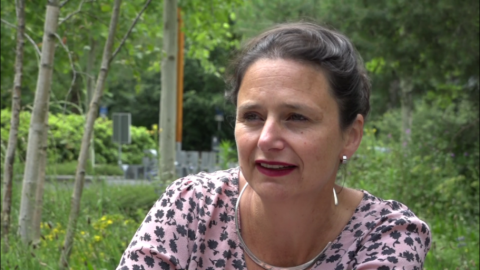
Fully funded by donors
The research project was financed by the Tilburg University Fund Foundation, which has made a sum of €55,000 available. This is the first research project fully funded by donors. 'Data Science for Humanitarian Innovations' is one of the projects the university fund is specifically raising funds for.
Become a donor
With your donation to the Tilburg University Fund, you can support various Tilburg University projects. Projects that can achieve just that little bit more with a financial impulse. Or initiatives that require a financial contribution to get started.
Date of publication: 17 December 2020

